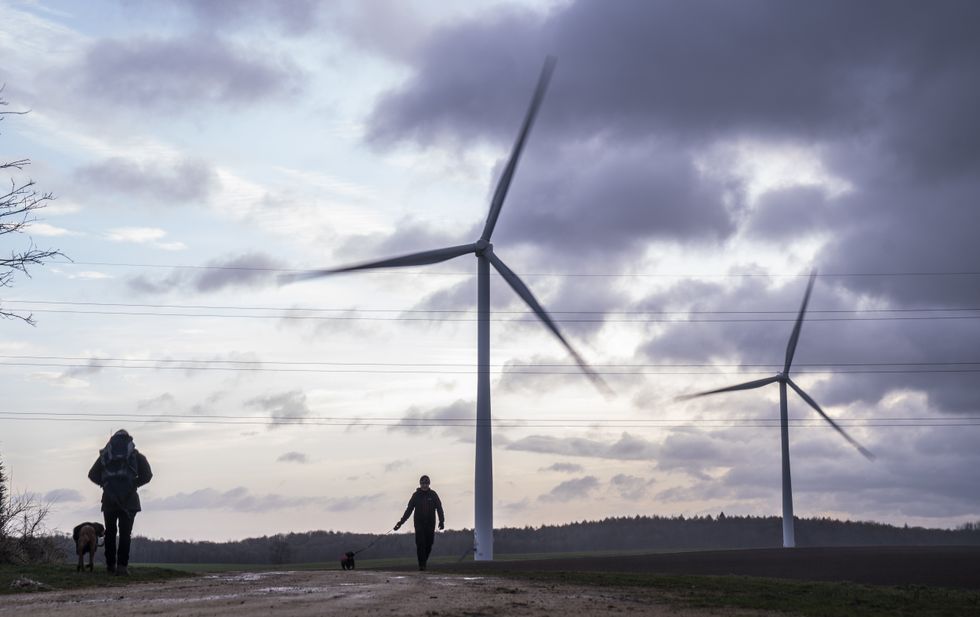Apache pulling out of its operations in the North Sea demonstrates clearly the danger to this country’s energy security from Ed Miliband’s incoherent energy policy.
The oil and gas industry in the North Sea is now taxed at 78 per cent and this Apache says, has made their business uneconomic. Not entirely surprising as if any of us were taxed on our income at 78 per cent, we would leave the country too.
Those who speak for the oil and gas industry have been warning for some time that increasing the energy profits levy – which is the windfall tax on profits made by firms extracting UK oil and gas – would at the very least, reduce investment in the sector and put thousands of jobs at risk.
But it is more than that as it puts energy security at risk too and what we pay for energy in our homes, businesses and industry, is most likely to go up not down.
The energy focus is on renewables, reducing the country’s use of hydrocarbon and achieving net zero.
Intermittent power though from windmills and solar panels simply cannot provide what this country needs.

Intermittent power though from windmills and solar panels simply cannot provide what this country needs, Angela Knight says
PA
To change from the UK’s traditional methods of generating electricity and heating homes is a modern Industrial Revolution, requiring engineers, good planning, realism from policy makers, sensible timetables and a huge amount of money.
Currently there are some 11,000 plus windmills and the proposal is to triple this number by the end of the decade.
Most of the onshore wind farms are in Scotland and most of the offshore down the east coast of the country, so requiring a massive expansion of – and changes to – the National Grid to get their electricity to the major conurbations.
Not surprisingly the residents of East Anglia and Essex are up in arms at the cable and pylons that will cover much of their countryside – and especially as on a sensible timetable, the cables could be put underground and at a similar cost.
When the sun isn’t shining, and the wind isn’t blowing – as has been the case for the last few days – an alternative source of power is needed.
Put another way, for every wind farm built, there has to be something else that is reliable and that can produce the same amount of electricity to fill the gap.
Gas is one option, and another is small scale nuclear reactors. These reactors are quick to build (about TWO years) and are investable by the private sector.
Yet delays remain; Rolls Royce is still waiting for approval and whilst they are being built elsewhere not one has even been started in this country. Our politicians talk about how cheap wind farms now are, without ever mentioning the cost of this back up.
In financial terms, add up the proper costs of the current energy policy – the renewables and their subsidies, the backup required and the billions for the new grid – and unless there is a magic wand somewhere, that is why we all pay more for heating, lighting and running businesses.
MORE FROM GBN MEMBERSHIP:
- Elon Musk shames Britain’s ‘crazy’ electricity prices in latest slur that doesn’t bode well for Starmer
- EXCLUSIVE: Staggering leaked messages show BBC staff in meltdown at Trump win: ‘The Annoying Orange won’
- POLL OF THE DAY: Should Nigel Farage help Starmer to build bridges with Donald Trump?
Meanwhile back to Apache and energy security, if the UK does not use its own reserves, then we will have to import gas from disturbed places such as the Middle East and import more electricity from Europe.
Both expose the country to the constraints of exporters, to the uncertainty that Europe has surplus electricity to export, and to higher costs.
Ed, you have been warned. Reduce the tax on those who are extracting UK oil and gas before others pull out.
And while you are at it, replace your current policy advisors with engineers, revise your energy timetable and be open about all the costs and not just some.
Otherwise, you will leave us with an even more uncertain and more expensive energy future.